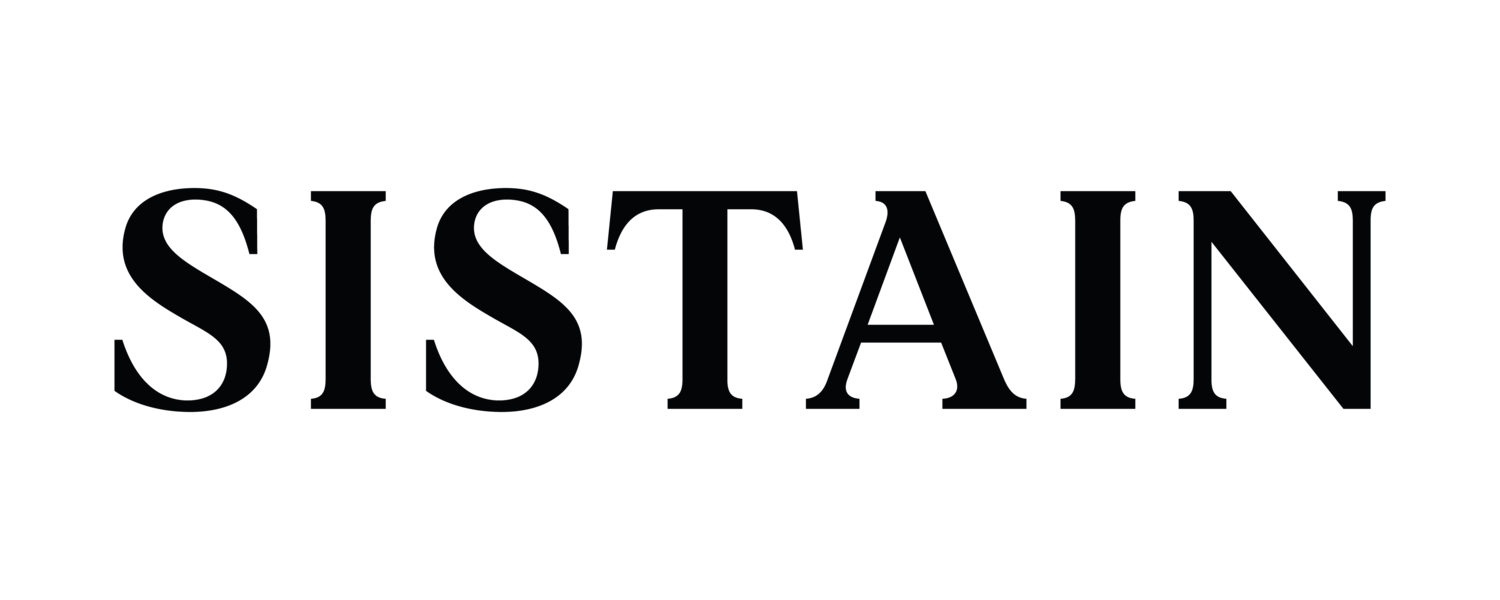The Plastic Problem & What We As Consumers Can Do About It During COVID-19
By Jaclyn Tracy
Image: Whimsy and Row
Since the coronavirus pandemic outbreak began, we have seen an alarming increase in plastic consumption due to take out orders, restaurant procedures and single-use personal protective equipment (PPE), like masks, gloves and hand sanitizer.
According to estimates, we are globally using 129 billion face masks and 65 billion plastic gloves every month. BBC reports, “Divers and observers are spotting more of this discarded waste floating underwater, causing problems for wildlife and washing up on shorelines all over the world.” (3)
On top of that, restaurants have become more dependent on single-use plastic bags, containers and utensils due to health concerns prompted by the coronavirus pandemic. (1) Before the outbreak, cities and states were making some progress on banning plastic bags and shifting away from single-use plastic. (2)
But much of that progress has been put on hold as restaurants are faced with larger challenges of keeping their employees and customers as safe as possible. The needed reforms have taken a back seat to the public safety concerns of keeping employees and customers safe. In our view, their challenges are understandable and for many, they may want to do better for the environment, but the lack of affordable alternatives are a real issue.
There are some innovative solutions emerging, such as generating QR codes so customers can read the menus on their smartphones rather than disposable menus. And restaurants can recycle disposable masks and gloves used by their employees through Terracycle, an organization that collects non-recyclable waste and turns it into raw materials for manufacturers. (1)
But, what can we as consumers do about covid plastic waste?
While there are many things that may be out of our control—such as the need for better global waste and recycling management or that we need to establish better policies for education to discourage the use of single-use masks and gloves—there are a few key actions we can take as consumers.
Please note: we are certainly not making any suggestions for how healthcare workers should protect themselves. Our focus here is on consumerism.
1. Buy a reusable mask made of sustainable materials
The CDC recommends using a cloth face covering to help slow the spread of COVID-19. Here are a couple of stylish and sustainable non-medical-grade masks from brands we love.
ARMEDANGELS
Our Pick: REDAVV 2.0 TC WARMLY
This unisex minimalist mask with metal wire and rubber bands which allow for the perfect fit on your nose is made of an organic cotton mix. You’ll be sure to make a statement (literally), when wearing it.
Price: €10 / $12
Sustainable Materials: 50% Cotton (organic), 50% Polyester (recycled)
Read more about the brand in 6 Sustainable Menswear Brands to Wear This Summer.WHIMSY + ROW
Our Pick: Summer Tones Washable Mask
This three layer, adjustable and washable gorgeous summer tone mask is complete with encapsulated wire nose crimp for face fitting seal and so your cute glasses won't fog up.
Price: $18
Sustainable Materials: 2 Layers of upcycled cotton and 1 layer of polypropylene filter
Read more about the brand in Saying No to Fast Fashion: 7 Sustainable Brands We're Shopping Instead.
2. Support nonprofit organizations that are cleaning up beaches
There are many organizations that support beach clean up, but there is one trailblazing nonprofit who has been at the forefront of cleaning up beaches, promoting healthy oceans, and creating federal and state government policy since 1972. That is Ocean Conservancy.
Ocean Conservancy promotes healthy and diverse ocean ecosystems and opposes practices that threaten both ocean and human life through research, education, and science-based advocacy.
The organization coordinates millions of volunteers of all ages, from all around the world, on an International Coastal Cleanup. In 2018, they found 400,000 waste items. This year, its volunteers will be able to update the group’s online database, Clean Swell, with COVID-19-related items, too.
3. Reduce single-use plastic
The best work we can do is to reduce our own plastic waste. The biggest single-use plastic culprits, known as THE BIG FOUR, include plastic bags, single-use straws, plastic water bottles and to-go coffee cups. Here are a few suggested replacements for single-use plastic in your daily life:
Alternative
Reusable Mask
Reusable Gloves
Reusable Shopping Bag
Stainless Steel, Glass, Bamboo or Silicone Straw
Bamboo Cutlery
Reusable Water Bottle
Reusable Coffee-Cup
Plastic
Masks
Gloves
Plastic Bags
Straws
Utensils
Plastic Water Bottle
To-go Coffee Cups
Let’s be honest, living through a pandemic is hard on all of us. But we will get through this, together. And while there are some unavoidable changes happening now, our mission remains clear: to offer sustainable lifestyle solutions to reduce the harmful environmental effects of consumerism through a collective positive impact.
We can all do a little better, even during these crazy times by shifting our focus to improving one behavior, one purchase at a time.
DOWNLOAD OUR COVID-19 PLASTIC ALTERNATIVE CHECKLIST HERE
(1) CNBC (2020). Plastic waste surges as coronavirus prompts restaurants to use more disposable packaging.
(2) NCSL (2020). State Plastic and Paper Bag Legislation
(3) BBC (2020). Coronavirus: 'The masks you throw away could end up killing a whale'
(4) Fast Company (2020). Masks, gloves, and other coronavirus waste are starting to fill up our oceans.
(5) Wired (2020). You Don't Need Single-Use Plastic Bags. You Need a Mask
ABOUT THE AUTHOR
Jaclyn Tracy is the founder of SISTAIN. Her goal is to make a greater difference by educating, activating and making sustainable consumerism not only easier, but aspirational. She believes success is in the collective impact, getting a whole group of people to change their behavior by committing to choosing sustainable brands, less waste and imperfect progress. Jaclyn is also the founder of Brand Effect, a holistic digital marketing agency.






